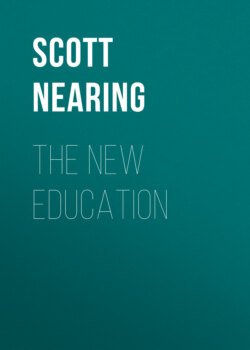Читать книгу The New Education - Scott Nearing - Страница 11
На сайте Литреса книга снята с продажи.
Оглавление“ ‘In this life, we want nothing but Facts, sir; nothing but Facts.’
“The speaker and the school master swept with their eyes the inclined plane of little vessels then and there arranged in order, ready to have imperial gallons of facts poured into them until they were full to the brim. So Mr. M’Choakumchild (the school master) began in his best manner. He went to work on this preparatory lesson, not unlike Morgiana in the Forty Thieves—looking into all the vessels ranged before him, one after another, to see what they contained. Say, good Mr. M’Choakumchild: when from thy store thou shalt fill each jar brim full by and by, dost thou think thou wilt always kill outright the robber Fancy lurking within, or sometimes only maim him and distort him!”
Is the picture overdrawn? Are there grades in our large American cities where conditions similar to those just portrayed may be found? Every parent who has a child in the public schools, every taxpayer who contributes to school support, has a right to a direct, impartial and honest answer to that question.
Among educators as well as among members of the general public a spirit of educational unrest has developed. Everywhere there is an ill-defined feeling of dissatisfaction with the work of the schools; everywhere an earnest desire to see the schools do more effectively the school work which is regarded, on every hand, as imperative.
The facts of school failure are more generally known than the facts of school success; yet there are successful schools. Indeed, some of the school systems of the United States are doing remarkably effective work. Emphasis has been lavished on the failure side of the educational problem, until public opinion is fairly alive to the necessity of some action. The time is, therefore, ripe for a positive statement of educational policy. Many schools have succeeded. Let us read the story of the good work. Efficient educational systems are in operation. Let us model the less successful experiments on those more successful ones.
Circumstances force people to live in one place, to see one set of surroundings and meet one kind of folks, until they are led to believe, almost inevitably, that their kind is the kind. Schools are the victims of just such provincialism. Although the school superintendents and principals, and some of the school teachers meet their co-workers from other cities, the people whose children attend the schools almost never have an opportunity to learn intelligently what other schools are doing. This city develops one educational idea, and that city develops another idea. Although both ideas may deserve widespread consideration, and perhaps universal adoption, they will fail to measure up to the full stature of their value unless the people in all communities learn about them intelligently.
